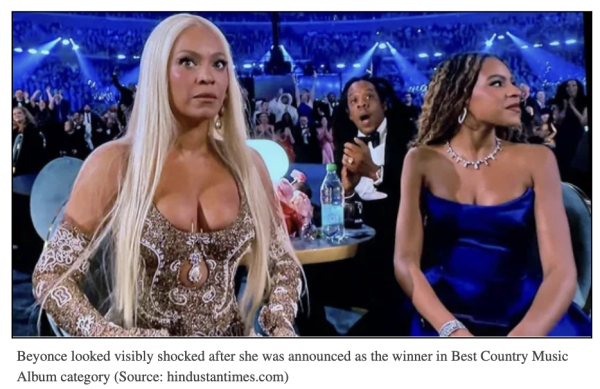A Better Democracy: Female Representation Hits All-Time High

Creative Commons
“For me a better democracy is a democracy where women do not only have the right to vote and to elect but to be elected.” – Michele Bachelet, former President of Chile
While women have made tremendous progress in numerous fields such as law, architecture, financial analysis and software developing, women are still absent from the majority of policymaking, and are largely underrepresented in government. The discrimination of women in political positions has persisted, and women still face huge inequalities surrounding their pay and the opportunities presented to them. However, there is a clear trend of the gradual increase of female political power globally that is fundamentally changing politics.
According to UN Women, 2020 saw “all-time highs for the number of countries with women Heads of State and/or Heads of Government, and the global share of women ministers, parliamentary speakers, and parliamentarians.” The rate of female representation globally in national parliament has increased from 11.8 to 17.8 percent between 1998-2008.
The increased representation of women in politics can be partially attributed to the increasing notion that women are more than capable to make important decisions and lead. The overall trend of female-led countries who handled the global pandemic of COVID-19 well is a testament to this. The Centre for Economic Policy Research and the World Economic forum analyzed 194 countries and concluded that the difference between the countries who on average handled the pandemic better “may be explained by the proactive and coordinated policy responses adopted by female leaders.” It was concluded that on average the women leading their countries adopted more restrictive policies much more rapidly in comparison to their male counterparts. When comparing countries of similar characteristics, research showed that there were 10 thousand deaths caused by COVID-19 in Germany in August of 2020, and comparatively 40 thousand deaths in the UK. Germany is led by Angela Merkel, the chancellor, and a female politician while the UK is led by the prime minister, Boris Johnson, a man. These are just two countries in comparison, but several other comparisons show the same trend. Dr. Garikipatti concluded that “women leaders were more willing to take risks in the domain of the economy” and that “being female-led has provided countries with an advantage in the current crisis.”
Women have continued to prove just how capable they are of leading in times of crisis, and people globally have begun to understand the tremendous benefits of electing female representatives and officials. When speaking to Chatham House about the impact of women in politics, particularly in the US, Stacey Abrams stated that “by adding more women to the conversation – especially women of color – were actually creating the space to have vibrant arguments about what policies are needed and we have the ability to push those policies through by electing women to be the champions.” The increased representation of women in politics allows for a significant and necessary shift in policymaking that prioritizes quality of life and supports minorities that perhaps had been previously mistreated by male politicians. One example of this is House Resolution 1151, introduced by house democrats such as Representatives Alexandria Ocasio-Cortez and Ilhan Omar, which attempts to fight against the violence and discrimination of women in politics. Not only has women’s representation in global politics been shown to help maintain a functioning democracy and an increasingly equal and just society, but it has also allowed for the promotion of female talent and knowledge that had been previously suppressed.
Kamala Harris broke countless barriers in this historic election for being the first woman and first Black American and Indian American vice president of the United States of America. Harris, a former prosecutor, and lawmaker, not only broke these boundaries, but also showed America, and the world, the tremendous possibilities of female politicians in their power to hold men accountable for their actions. Kamala Harris has also tackled the sexist double standard that has impacted countless female politicians like Hilary Clinton in the past by following her own path and proving herself worthy of such an important position. Women and specifically Black women have been the backbone of the democratic party, showing up in record numbers to vote, and holding a significant amount of influence and power in the presidential elections. However, Black women have never held a position of power as high as vice president in America, and have never been able to use their important perspective and power to create policies that represent all of America. Kamala Harris’s win also impacts young girls, especially of color, in America and beyond who can finally be represented, seen, and heard in a major way that had never happened before. In Harris’s victory speech she concluded her enthusiastic and hope-filled speech stating that “but while I may be the first woman in this office, I won’t be the last,” expressing an optimistic statement on the future of the role of women in American politics. Vice president-elect Kamala Harris’s win is a testament to the tremendous progress and increasing influence of female politicians globally.
Women have had to fight tremendously for decades to be represented in politics. Incredibly division and sexism persist globally as women continue to be under-represented and neglected. Not only do women disproportionately face unnecessary criticism and are victims to harsh double standards that work against their favor, but women are also less likely to run for elected positions. In recent years, there has been a tremendous shift as countless women have run for elected positions globally out of frustration for the lack of representation, as well as the failed male leadership in their country. The rise of female leadership and female power in the political scene has impacted people globally as countless individuals have continued to realize the incredible benefits of electing women policy-makers and officials. Despite the sexism and divisiveness that persists in our world, it is clear that the future of women in politics is bright.

I am Tatiana Barberi, class of 2022. I'm the Visuals Editor in charge of ensuring that articles published at UNISVerse have images that help reflect the...











